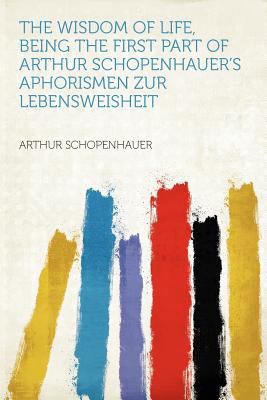All Formats & Editions
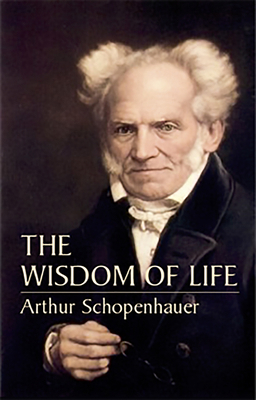
The Wisdom of Life
A leading German metaphysician of the 19th century, Arthur Schopenhauer (1788-1860) exerted an influence far beyond the hermetic world of philosophy, with adherents ranging from Richard Wagner and Friedrich Nietzsche to Leo Tolstoy and Thomas Mann. Among Schopenhauer's chief...
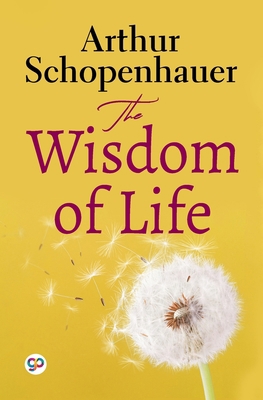
The Wisdom of Life (General Press)
'The Wisdom of Life' is a short philosophical essay by the Nineteenth-century German philosopher Arthur Schopenhauer (1788-1860). In this last published work, Arthur breaks down happiness into three parts and explores the nature of human happiness, and tries to understand...
![El Arte de Ser Feliz [Spanish] 8425438926 Book Cover](https://i.thriftbooks.com/api/imagehandler/l/79BD6AE266D6193DEACEB65F9D711762CCC2D200.jpeg)
El Arte de Ser Feliz [Spanish]
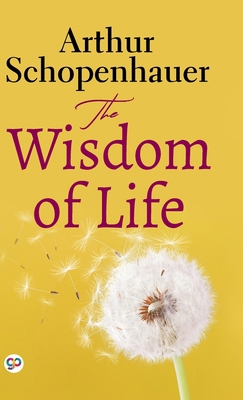
The Wisdom of Life (Deluxe Library Edition)
'The Wisdom of Life' is a short philosophical essay by the Nineteenth-century German philosopher Arthur Schopenhauer (1788-1860). In this last published work, Arthur breaks down happiness into three parts and explores the nature of human happiness, and tries to understand...
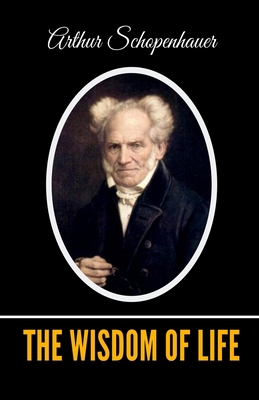
The Wisdom of Life
In these pages I shall speak of The Wisdom of Life in the common meaning of the term, as the art, namely, of ordering our lives so as to obtain the greatest possible amount of pleasure and success; an art the theory of which may be called Eudaemonology, for it teaches us how...

The Essays of Schopenhauer: The Wisdom of Life

The Wisdom of Life
circumstances to follow a sedentary occupation, some minute exquisite work of the hands, for example, or to engage in study and mental labor demanding quite other powers, and just those which he has not got,--compelled, that is, to leave unused the powers in which he is pre-eminently...
![ARTE DI ESSERE FELICI - ARTHUR [Italian] 8845912957 Book Cover](https://m.media-amazon.com/images/I/31Co74Bu5AL._SL500_.jpg)
ARTE DI ESSERE FELICI - ARTHUR [Italian]
![Aforismos sobre la sabiduría de la vida [Spanish] 1530245508 Book Cover](https://i.thriftbooks.com/api/imagehandler/l/D591C7E98F68688FFAC8519D609CFFDE794CA23F.jpeg)
Aforismos sobre la sabiduría de la vida [Spanish]
Los Aforismos sobre la sabidur a de la vida (1851) son un compendio de filosof a pr ctica en el que Schopenhauer recoge doctrinas, recomendaciones y advertencias para desenvolverse mejor en la vida y evitar sus trampas y contrariedades, un arte de prudencia, en suma, que se puede...
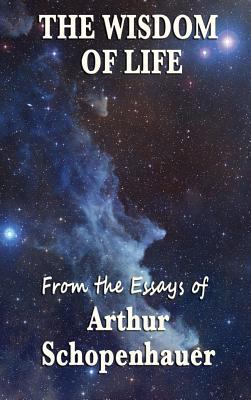
The Wisdom of Life
Collected here are four short essays, Division of the Subject, Personality, or What a Man Is, Property, or What a Man Has, Position, or a Man's Place in the Estimation of Others, by the world renowned philosopher Arthur Schopenhauer.

The Essays of Arthur Schopenhauer: The Wisdom o...
"Opinion is like a pendulum and obeys the same law. If it goes past the centre of gravity on one side, it must go a like distance on the other; and it is only after a certain time that it finds the true point at which it can remain at rest." An ardent expounder for self-disciple...
![Aphorismen zur Lebensweisheit [German] 1722323574 Book Cover](https://i.thriftbooks.com/api/imagehandler/l/D7F68E557C1329E30D04707FA6ADD165C5EF617F.jpeg)
Aphorismen zur Lebensweisheit [German]
Arthur Schopenhauer war ein deutscher Philosoph, Autor und Hochschullehrer. Schopenhauer entwarf eine Lehre, die gleicherma en Erkenntnistheorie, Metaphysik, sthetik und Ethik umfasst. Er sah sich selbst als Sch ler und Vollender Immanuel Kants, dessen Philosophie er als Vorbereitung...
![Aforismos sobre el arte de vivir (Spanish Edition) [Spanish] 8420609617 Book Cover](https://m.media-amazon.com/images/I/41cLMM1vsbL._SL500_.jpg)
Aforismos sobre el arte de vivir (Spanish Edition) [Spanish]
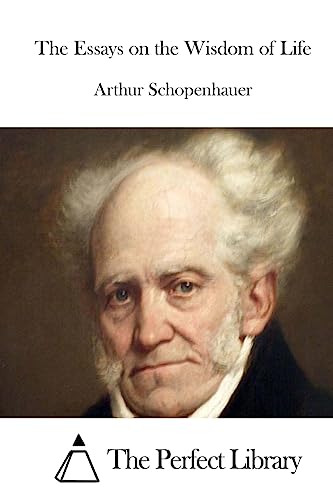
The Essays on the Wisdom of Life
"The Essays on the Wisdom of Life" from Arthur Schopenhauer. German philosopher (1788-1860).
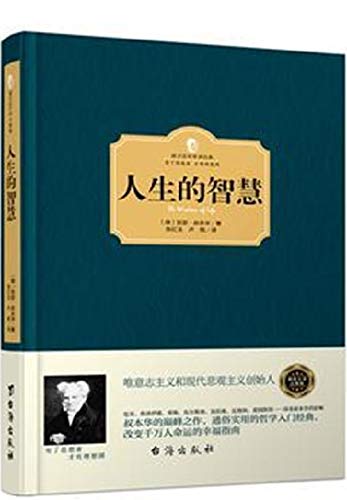
?????(?)/????????
![Aphorismen Zur Lebensweisheit [German] 3458319239 Book Cover](https://i.thriftbooks.com/api/imagehandler/l/314BADB221152DA198006757002189F736BAF834.jpeg)
Aphorismen Zur Lebensweisheit [German]
![Arte del Buen Vivir [Spanish] 8471664151 Book Cover](https://m.media-amazon.com/images/I/4140XRVuDqL._SL500_.jpg)
Arte del Buen Vivir [Spanish]
This essay examines how to discover the highest possible degree of pleasure and success, and suggests guidelines for experiencing life to its fullest. Lucid and compelling, Schopenhauer's work offers a powerfully original point of view on a subject of perennial interest.

Memoir of the Life and Public Services of Sir T...
![Aphorismen zur Lebensweisheit [German] 3843015481 Book Cover](https://i.thriftbooks.com/api/imagehandler/l/99610106F2F08F144057C0BC823760100668AA4A.jpeg)
Aphorismen zur Lebensweisheit [German]
Arthur Schopenhauer: Aphorismen zur Lebensweisheit Erstdruck: 1851 Vollst ndige Neuausgabe. Herausgegeben von Karl-Maria Guth. Berlin 2016. Umschlaggestaltung von Thomas Schultz-Overhage unter Verwendung des Bildes: lgem lde von Julius Hamel: Erstes Portr t Arthur Schopenhauers,...

The Wisdom of Life
In these pages I shall speak of The Wisdom of Life in the common meaning of the term, as the art, namely, of ordering our lives so as to obtain the greatest possible amount of pleasure and success; an art the theory of which may be called Eudaemonology, for it teaches us how...
![Yasam Bilgeligi Üzerine Aforizmalar [Turkish] 9754587000 Book Cover](https://m.media-amazon.com/images/I/31ei4tx1EFL._SL500_.jpg)
Yasam Bilgeligi Üzerine Aforizmalar [Turkish]
![El arte de ser feliz: Explicado en cincuenta re... [Spanish] 8425426286 Book Cover](https://m.media-amazon.com/images/I/51S5l9kHmRL._SL500_.jpg)
El arte de ser feliz: Explicado en cincuenta re... [Spanish]
![Aphorismes sur la sagesse dans la vie [French] 3967875938 Book Cover](https://i.thriftbooks.com/api/imagehandler/l/CB285E2966B874959859E747493944373632179E.jpeg)
Aphorismes sur la sagesse dans la vie [French]
Je prends ici la notion de la sagesse dans la vie dans son acception immanente, c'est- -dire que j'entends par l l'art de rendre la vie aussi agr able et aussi heureuse que possible. Cette tude pourrait s'appeler galement l'Eud monologie; ce serait donc un trait de la...
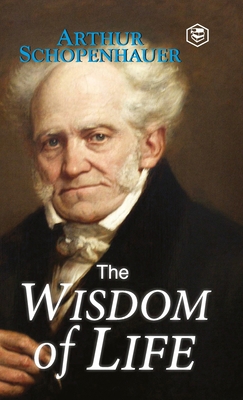
The Wisdom of Life
In The Wisdom of Life, an essay from Schopenhauer's final work, Parerga und Paralipomena (1851), the philosopher favors individual strength of will and independent, reasoned deliberation over the tendency to act on irrational impulses. He examines the ways in which life can be...
